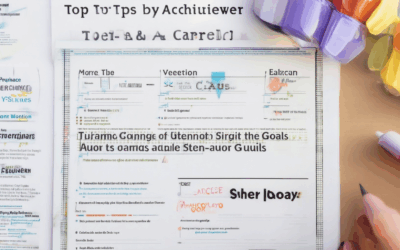Building mental resilience is crucial for achieving peak performance in life, whether you’re an athlete, a professional, or someone navigating daily challenges. In this comprehensive guide, we’ll delve into actionable strategies to help you cultivate the strength and perseverance needed to thrive under pressure. From understanding the core components of resilience to exploring proven methods for enhancing mental toughness, this article offers valuable insights tailored to individuals seeking to overcome obstacles and embrace a growth mindset. By equipping yourself with the tools to stay focused, remain calm during crises, and resiliently adapt to change, you’ll unlock your full potential and discover how to navigate life’s ups and downs with confidence and ease.
Key Takeaways
- Cultivate a Positive Mindset: Reframe challenges, practice gratitude, and use affirmations to build resilience and confidence.
- Develop Strong Problem-Solving Skills: Break down complex issues into manageable steps for effective solutions and adaptability.
- Embrace Failure as Growth: View setbacks as stepping stones and learn from past mistakes to drive improvement.
- Practice Self-Compassion: Be kind to yourself during tough times and engage in self-care to strengthen your mental resilience.
- Build Unshakable Confidence: Believe in your abilities, take calculated risks, and grow through positive experiences.
- Embrace Challenges as Opportunities: Approach obstacles with a growth mindset and maintain composure to thrive.
- Master Response Control: Use techniques like deep breathing to manage stress and stay calm under pressure.
- Stay Committed to Long-Term Goals: Dedicate yourself to objectives, understanding that perseverance leads to success.
- Foster Perseverance: Maintain focus and determination to overcome obstacles and achieve your goals.
- Cultivate Positivity: See challenges as opportunities and use gratitude practices to enhance your outlook.
- Find Your Purpose: Align your actions with your values to gain stronger motivation and a clear direction.

How Can I Improve My Mental Resilience?
To enhance your mental resilience, consider implementing the following strategies:
- Understand Mental Resilience : Recognize that resilience involves adapting to challenges with positivity and endurance, rather than avoiding difficulties.
- Set Achievable Goals : Create personal objectives that are challenging yet manageable. Break them into smaller steps to foster a sense of accomplishment.
- Cultivate a Positive Outlook : Practice affirmations and gratitude by writing down daily positives to shift your mindset towards expectation and positivity.
- Prioritize Physical Health : Engage in regular exercise, ensure adequate sleep, and maintain a nutritious diet to support overall well-being.
- Practice Mindfulness : Incorporate mindfulness or meditation through guided apps to focus on the present moment and manage stress effectively.
- Build a Support Network : Connect with friends, family, or online communities to reduce isolation and gain emotional support.
- Embrace Failure as Learning : View setbacks as part of growth, keeping a journal to track progress and reflections.
- Limit Negative Influences : Surround yourself with positive environments and people, mindful of media consumption that may impact your mood.
- Practice Self-Compassion : Treat yourself kindly during tough times, recognizing that challenges are common and seeking help is acceptable.
- Seek Professional Help When Needed : Consult therapists for tailored strategies if resilience is significantly impacted.
By integrating these strategies, you can build a stronger mental resilience, enabling better navigation of life’s challenges.
The 7 Cs of Resilience
Resilience is the ability to adapt and recover from challenges. Here are the key components that define resilience:
- Courage : The strength to face difficult situations and take bold actions despite fear or uncertainty.
- Conviction : A firm belief in your values and goals, guiding your decisions even when faced with opposition.
- Compassion : Empathy and kindness towards yourself and others, fostering connections during tough times.
- Communication : Effective sharing of thoughts and feelings to build trust and seek support.
- Creativity : Thinking outside the box to find innovative solutions to problems.
- Connection : Building strong relationships and communities that provide support and inspiration.
- Continuity : Maintaining focus and purpose despite setbacks, ensuring long-term progress.

What are the 5 R’s of resilience?
The 5 R’s of resilience are key principles that help individuals, organizations, and systems navigate challenges and thrive under pressure. These principles foster adaptability, growth, and long-term success.
- R – Resilience : The ability to recover from setbacks and adapt to changes. Resilience involves mental toughness, emotional intelligence, and a willingness to embrace uncertainty.
- R – Relationships : Building strong connections with others fosters support networks that can help during difficult times. Healthy relationships are built on trust, communication, and empathy.
- R – Revenge : Not seeking revenge but instead focusing on moving forward. Revenge mindset can lead to negative outcomes, while focusing on growth prevents stagnation.
- R – Redundancy : Creating backup plans and having multiple ways to achieve goals ensures that progress isn’t hindered by a single failure or obstacle.
- R – Resources : Having access to tools, knowledge, and support systems allows individuals to overcome challenges effectively. Utilizing available resources maximizes potential for recovery and growth.

What Are the 4 Pillars of Mental Resilience?
Mental resilience is the ability to navigate life’s challenges with strength and adaptability. It encompasses a set of skills that allow individuals to recover from setbacks, thrive under pressure, and maintain emotional well-being. Below are the four key pillars of mental resilience:
- Positive Thinking :
- Cultivating a positive mindset is crucial for resilience. It involves reframing negative experiences and focusing on solutions rather than dwell on problems.
- Practice gratitude by acknowledging the small positives in daily life.
- Replace self-talk filled with doubt with affirmations that foster confidence and optimism.
- Problem-Solving Skills :
- Developing effective problem-solving abilities helps individuals address challenges head-on.
- Break complex issues into smaller, manageable steps.
- Stay flexible and open to exploring alternative solutions when needed.
- Acceptance of Failure :
- Embrace mistakes as opportunities for growth rather than seeing them as personal failures.
- View failure as a stepping stone toward success.
- Learn from past mistakes and apply the lessons moving forward.
- Self-Compassion :
- Be kind to yourself during difficult times.
- Acknowledge your emotions without judgment.
- Engage in self-care activities to recharge and rebuild confidence.
By mastering these four pillars, individuals can build a strong foundation for mental resilience, enabling them to face life’s challenges with greater ease and confidence.
What are the 4 C’s of mental toughness?
Mental toughness is often defined by a set of core characteristics that enable individuals to handle stress, maintain focus, and perform under pressure. Among the most commonly cited traits, the “Four Cs” of mental toughness, as outlined by psychologist Peter Clough in his book Developing Mental Training , are essential for achieving peak performance. These traits work synergistically to build resilience and adaptability, allowing individuals to thrive in challenging situations.
1. Confidence
Confidence is the foundation of mental toughness. It involves believing in one’s abilities and capabilities, regardless of external circumstances. Confident individuals are less likely to doubt themselves during difficult moments and are more inclined to take calculated risks. Over time, confidence grows through consistent positive experiences and learning from setbacks.
2. Challenge
The ability to embrace and navigate challenges is a hallmark of mental toughness. This doesn’t mean seeking out discomfort for its own sake but rather viewing obstacles as opportunities for growth. A mentally tough individual understands that challenges are inevitable and learns to approach them with a problem-solving mindset. They remain composed under pressure and are willing to invest time and effort to overcome barriers.
3. Control
Control is about managing one’s reactions and responses to external events. It involves recognizing that we can’t always control outcomes but can control our attitudes and actions. This trait allows individuals to stay calm and focused even when circumstances are beyond their immediate influence. Effective stress management techniques, such as deep breathing exercises, can help cultivate this aspect of mental toughness.
4. Commitment
Commitment refers to staying dedicated to long-term goals despite obstacles and setbacks. It’s about maintaining focus and motivation even when progress is slow or challenging. Committed individuals understand that perseverance leads to success and are willing to endure hardships for what they believe in. This trait fosters resilience and ensures that individuals stick with their objectives, even in the face of adversity.
By mastering these four Cs—Confidence, Challenge, Control, and Commitment—individuals can significantly enhance their mental toughness, enabling them to excel in various aspects of life.

What Are the 3 Ps to Build Emotional Resilience?
Emotional resilience is the ability to navigate life’s challenges with strength and adaptability. According to positive psychology, there are specific strategies to cultivate this resilience. One widely recognized framework is the 3 Ps model developed by Martin Seligman:
- Perseverance : This involves maintaining focus and determination in the face of obstacles. Perseverance helps individuals keep going despite setbacks, whether in personal goals or daily tasks. It’s about staying committed to your objectives even when progress feels slow.
- Positivity : Emotional resilience often begins with our mindset. Cultivating a positive outlook allows us to see challenges as opportunities for growth rather than insurmountable obstacles. Practices like gratitude journaling or focusing on silver linings can significantly enhance this aspect.
- Purpose : Having a clear sense of purpose provides a strong foundation for resilience. Knowing why you’re working toward a goal or navigating difficult situations gives you the motivation to keep moving forward. Purpose often comes from aligning your actions with your values or contributing to something bigger than yourself.
By focusing on these three Ps—perseverance, positivity, and purpose—you can build lasting emotional resilience. Remember, resilience isn’t about avoiding challenges but learning to thrive through them.
Learn more about emotional resilience and personal growth on 7Del.net.




0 Comments